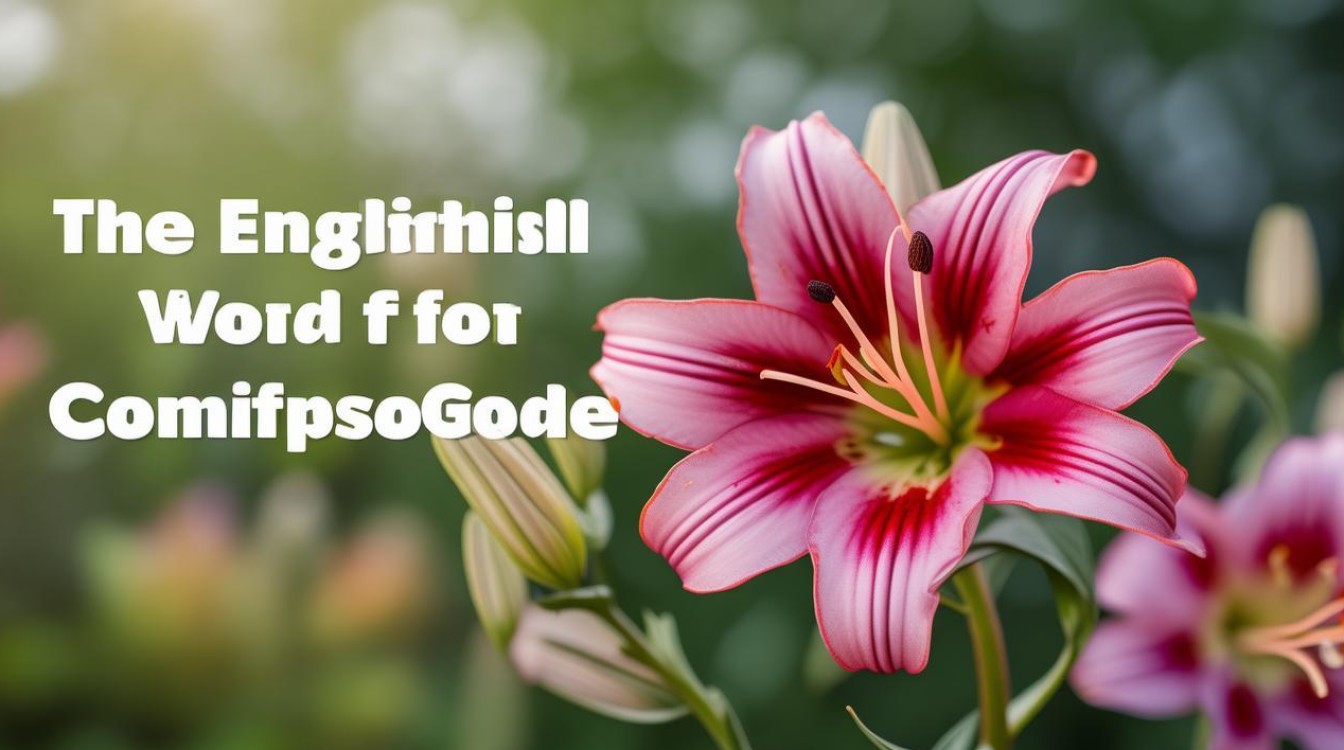Lilies are among the most elegant and widely recognized flowers in the world. Known for their striking beauty and symbolic meanings, they hold a special place in gardens, bouquets, and cultural traditions. If you're curious about the English word for lily and want to explore its linguistic and botanical aspects, this guide will provide detailed insights.

The English Word for Lily
The English word for lily is simply "lily." This term refers to the flowering plants belonging to the genus Lilium, which includes over 100 species. The word "lily" originates from the Latin "lilium," which itself traces back to the Greek "leirion."
Lilies are admired for their large, fragrant blooms and come in various colors, including white, pink, yellow, orange, and red. They are often associated with purity, renewal, and devotion, making them popular in weddings, religious ceremonies, and floral arrangements.
Types of Lilies in English
Different lily species have distinct names in English. Here are some of the most well-known varieties:
- Asiatic Lily – Known for vibrant colors and lack of fragrance, these are among the easiest to grow.
- Oriental Lily – Famous for their strong scent and large, showy flowers.
- Trumpet Lily – Recognizable by their trumpet-shaped blooms and tall stems.
- Tiger Lily – Features bold orange petals with dark spots, resembling a tiger’s coat.
- Easter Lily – A symbol of resurrection, often used in Christian celebrations.
- Calla Lily – Though not a true lily (belonging to the Zantedeschia genus), it is commonly referred to as one due to its similar appearance.
The Cultural Significance of Lilies
Lilies have deep cultural and historical meanings across different societies:

- Ancient Greece and Rome – Associated with motherhood and fertility, often linked to goddesses like Hera and Juno.
- Christianity – The white Madonna Lily symbolizes the Virgin Mary’s purity.
- Chinese Culture – Represents good luck and abundance, frequently used in festivals.
- Victorian Era – Floriography (the language of flowers) used lilies to convey messages of refined beauty and majesty.
Growing and Caring for Lilies
If you’re interested in cultivating lilies, here are key tips:
- Planting – Bulbs should be planted in well-draining soil, ideally in autumn or early spring.
- Sunlight – Most varieties thrive in full sun to partial shade.
- Watering – Keep soil moist but avoid waterlogging to prevent rot.
- Maintenance – Deadhead spent flowers and mulch in winter for protection.
Common Phrases and Idioms with "Lily"
The word "lily" appears in several English expressions:
- "Gild the lily" – To unnecessarily embellish something already beautiful.
- "Lily-livered" – An old term meaning cowardly.
- "Pale as a lily" – Describing someone with very fair skin.
Misconceptions About Lilies
Despite their beauty, some misconceptions exist:
- All lilies are fragrant – While Oriental lilies are highly scented, Asiatic varieties are not.
- Lilies and daylilies are the same – Daylilies (Hemerocallis) belong to a different botanical family.
- Lilies are safe for all pets – Many species are toxic to cats, requiring caution in pet-friendly homes.
The Linguistic Journey of "Lily"
The word "lily" has evolved across languages:

- Old English – "Lilie"
- French – "Lys"
- German – "Lilie"
- Spanish – "Lirio"
This consistency highlights the flower’s universal appeal.
Lilies in Literature and Art
From Shakespeare to modern poetry, lilies frequently appear as symbols of beauty and transience. Painters like Claude Monet and Vincent van Gogh have immortalized them in their works, showcasing their delicate yet bold presence.
Why Knowing the English Word for Lily Matters
Understanding the term "lily" enhances appreciation for its botanical and cultural richness. Whether you're a gardener, florist, or language enthusiast, recognizing the significance of this word deepens your connection to nature and history.
Lilies continue to captivate with their elegance and versatility. Their name, simple yet profound, carries centuries of meaning—proof that even the most familiar words hold fascinating stories.



